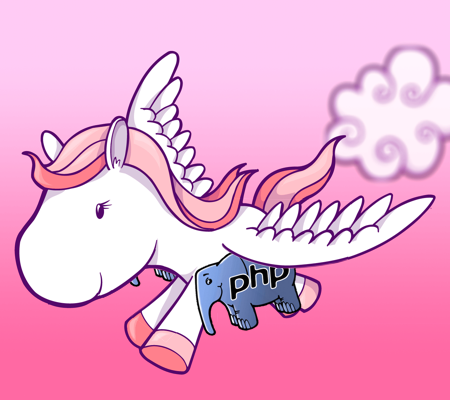django-php: php in django templates
 In this post I will tell you how to make friends with Django and PHP using the django-php application.
In this post I will tell you how to make friends with Django and PHP using the django-php application.We will need a php-cgi binary installed in the system. You can check its availability by typing in the terminal
$ which php-cgi Installation
django-php is available in PyPI and is installed in the usual way:
')
$ pip install django_php # $ easy_install django_php In the settings.py file, add
'django_php' to the INSTALLED_APPS list. In addition, you can specify (or you can not specify) the path to php-cgi: PHP_CGI = '/usr/local/bin/php-cgi' Using
In the template, load the php library:
{% load php %} django-php provides us with two tags,
{% php %} and {% startphp %}...{% endphp %} . Single line calls look like this: {% php echo 9; %} or, for example:
{% php phpinfo(); %} or even like this:
{% php for ($i = 0; $i < 8; ++$i) { %} <li>{% php echo $i; %}</li> {% php } %} For more extensive code sections, a block tag is used:
{% startphp %} $str = '{{ str|addslashes }}'; $str = strrev($str); echo strtoupper($str); {% endphp %} Limitations of the alpha version
This is the very first version of django-php, and at the moment it cannot fcgi, cannot work with cookies,
_GET , _POST , send headers.The demo project is available in the repository ( link to GitHub ) along with the source code of the application itself.
Source: https://habr.com/ru/post/125773/
All Articles